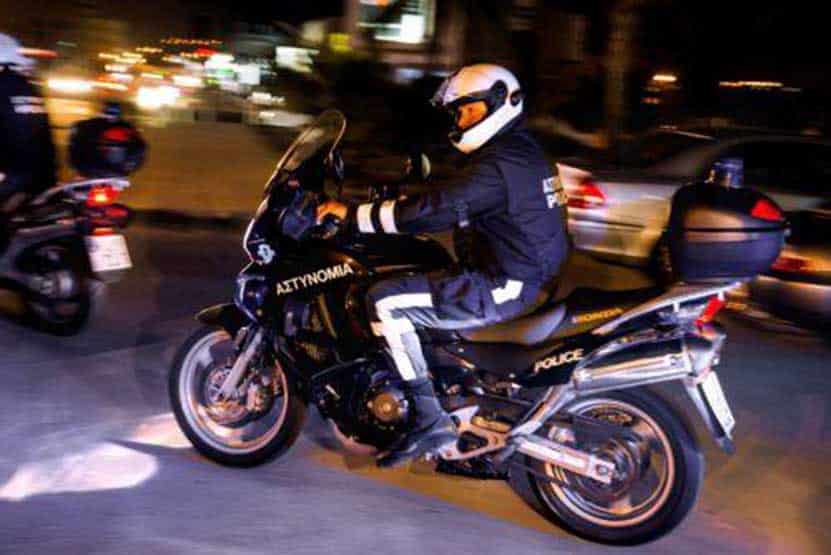Police have launched a two-month clampdown on organised crime, the force’s spokesman Christos Andreou confirmed on Tuesday, while an investigation is underway on how details of the operation got leaked to media.
For a period of 60 days, police will step-up night patrols, with around 200 officers on motorised patrol late at night and into morning hours, Philenews reported.
The daily also reported that a 16-page plan of action, with the intent of combatting serious organised crime, had been sent by police leadership to all the heads of branches, services and departments within the police corps.
The action plan started on Friday and will continue through May 22.
“Citizens just need to be informed that over this time they will be seeing increased presence of police patrols, particularly at night,” Andreou told state broadcaster CyBC, confirming aspects of the report.
He added that information from the public, including reporting suspicious activity to the nearest police station, was welcomed.
In response to a query as to whether the boosted police presence was also due to heightened security in other countries to guard against terrorist attacks, Andreou told the Cyprus News Agency that no public comment could be made.
He added that police were currently investigating how details of the confidential document sent to police were leaked.
Frequent coordinated operations and systematic vehicle checks on suspicious persons and premises will be carried out for the duration of the operation, Andreou said.
It is clear that the measure is meant to deal a strong blow to criminal elements, after consensus has emerged that organised crime on the island has peaked and certain criminal elements were behaving with impunity, including openly organising crimes from prison.
Crime per capita in Cyprus has risen for the second consecutive year, according to the police’s annual statistics, released for 2021 and 2022.
In both 2022 and 2021, offences against property constituted the largest group of offences, accounting for 39.8 per cent and 37.5 per cent of all serious offences respectively.
Officials of justice, as well as police, have been targeted by the underworld, as in the case of a bomb outside the residence of a public prosecutor, in December and fire set to the prosecutor’s car in January.
According to the initial report, confidential instructions provided to police regarding the operation are highly specific, with 36 geographic areas under heightened surveillance boosted with input from the force’s information analysis unit.
Eleven areas will be monitored in Nicosia, nine areas in Limassol, six in Larnaca, five in Paphos, three in Famagusta, and two in Morphou.
Police officers working day shifts, 7am to 2.30, are also to be recruited, as are members of the immigration service and the drug squad.
Trade unions have meanwhile reacted to the operational plan and actions required to be taken by staff. Last week police unions to “Equality” and Asdyk raised the issue of officers required to work overtime without appropriate remuneration, when it was announced they would be given their time in leave.
According to reports the staff affected number over 20, and police unions have also expressed concern over the additional the workload created by potentially increased arrests, and inadequacy of staffing numbers, as well as detention facilities.
The police said they had “weighed, on the one hand, all the acquired labour rights of its members, as well as the extremely difficult conditions prevailing at this time in our country.”
They added that police officers should “feel the highest duty they have to serve” and thus “express their willingness to assist as and when needed.”
They said the decision had been taken “after consultation with district police directors and after taking into account the personal and other circumstances of the affected members.”
“We look forward to an understanding and positive response of the members, bearing in mind the above,” they said.







Click here to change your cookie preferences